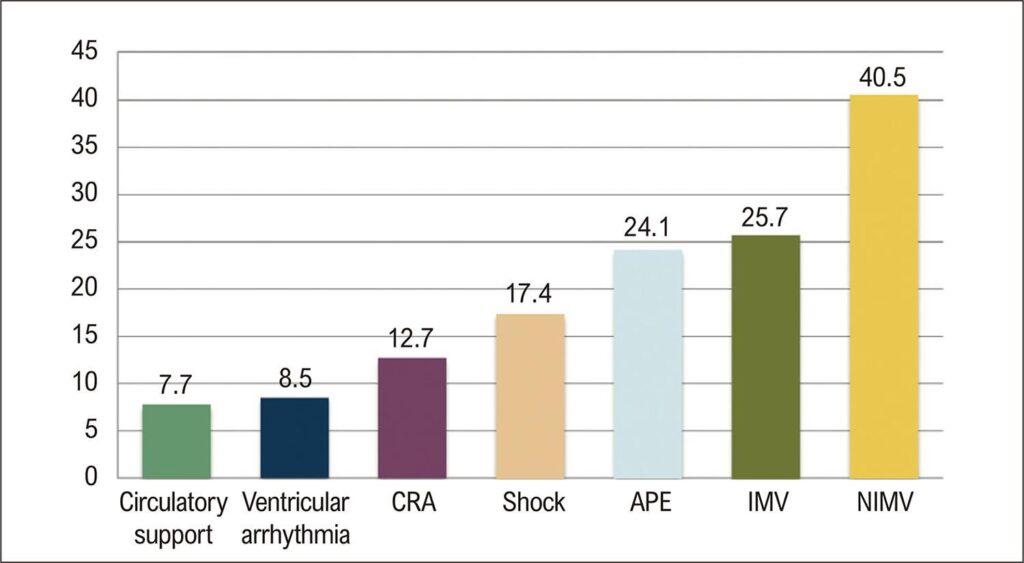ABC Heart Fail Cardiomyop 2022; 2(4): 374-380
Takotsubo Cardiomyopathy in Patients with Cancer
Abstract
Takotsubo cardiomyopathy (TC) in cancer patients has been predominantly noted as a cardiotoxic complication of oncologic therapy or secondary to catecholamine overload in specific tumors such as pheochromocytomas. The underlying pathophysiological mechanisms that lead to TC are not entirely understood. The diagnosis of TC can be challenging and may be neglected during cancer treatment, given the wide range of cardiotoxic effects of antineoplastic therapies. However, TC in oncology exists more often than formerly assumed, and it should be included in the differential diagnosis by physicians dealing with cancer patients. An increased suspicion is crucial for earlier diagnosis and treatment to improve outcomes. In addition to a risk model strategy identifying those cancer patients with the highest risk of having TC, translational studies are awaited. They would clarify the underlying mechanism of TC, disclose targets for prevention and treatment and determine whether re-exposing the patient to the same or equivalent anticancer agents would be secure and feasible.
Keywords: Cardiotoxicity; Neoplasms; Takotsubo Cardiomyopathy
601


